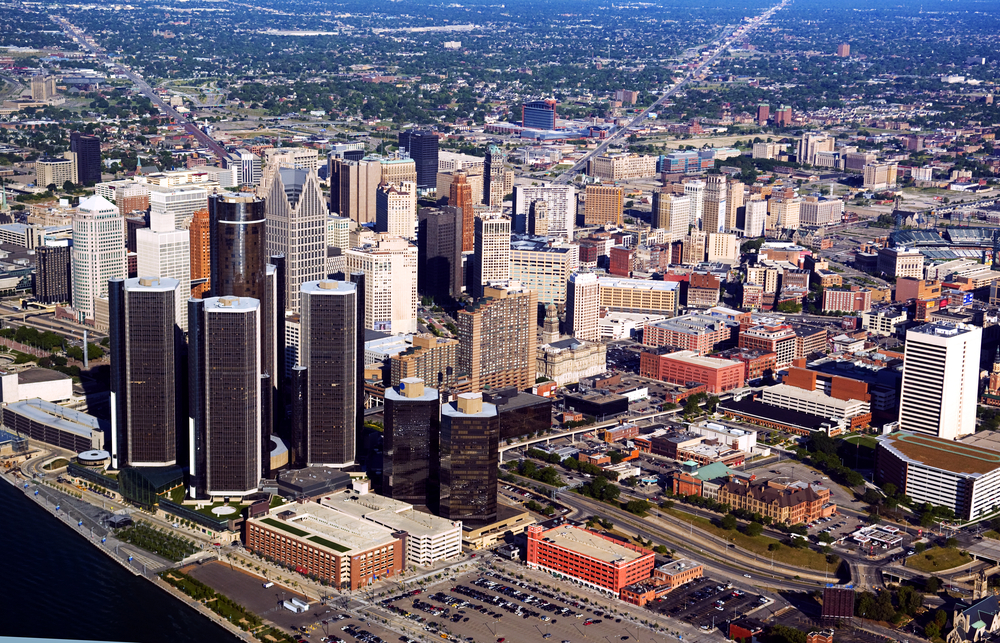 Detroit continues to enjoy benefits from the ‘Comeback City’ narrative that has thankfully replaced the much more negative headlines that have crippled this city for decades. But those who live here know all too well that as good as this newly polished image makes us feel, we know it is incomplete. And those foundations that have remained demonstrably committed to the revitalization of Detroit – and who have put their money where their mouths are – are among those most in the know about what deserves applause and what should still be placed on pause.
Detroit continues to enjoy benefits from the ‘Comeback City’ narrative that has thankfully replaced the much more negative headlines that have crippled this city for decades. But those who live here know all too well that as good as this newly polished image makes us feel, we know it is incomplete. And those foundations that have remained demonstrably committed to the revitalization of Detroit – and who have put their money where their mouths are – are among those most in the know about what deserves applause and what should still be placed on pause.
Within the confines of the city itself the narrative about the city’s prospects is still noticeably more positive than you would have heard nearly four years ago on July 18, 2013 when the city entered the largest municipal bankruptcy filing in U.S. history. At that time, Detroit was essentially looking upward at rock bottom and contemplating whether it was possible for things to get much worse.
So yes, without question, compared to those nerve-wracking days, Detroit 2017 is a near-miracle demonstrating the sort of resilience and fortitude for which we are well-known. We have returned from the dead, and we’re grinning.
Or at least some of us are.
At this year’s second Pancakes & Politics forum, representatives from five major foundations will weigh in with their perspectives on Detroit’s future, and what role their respective organizations might play in shaping that future. Those participating on Thursday morning’s panel discussion are: David Egner, President and CEO, Ralph C. Wilson Foundation; Mariam Noland, President, Community Foundation for Southeast Michigan; Tonya Allen, President and CEO, The Skillman Foundation; Rip Rapson, President and CEO, The Kresge Foundation; and Melanca Clark, President and CEO, Hudson Webber Foundation.
The issue of who will be allowed to share control of the city’s future direction and development will most likely be the elephant in the room. And are the neighborhoods finally getting the attention that has been poured all over downtown? And how much of a part will black people play in the re-imagining and redevelopment of this majority black city? How much do the issues of race and poverty factor into the decisions made by these community leaders when making economic decisions affecting a community that is overwhelmingly black and poor?
Because the uncomfortable fact remains that, at least if one is paying any attention to the visuals, considerably more progress is being made in the city’s downtown and surrounding areas – which host a markedly higher percentage of white residents and visitors – than in any of the city’s neighborhoods. Although the recent announcement of the $6 million investment being made into the Fitzgerald neighborhood is certainly a reason for hope, the sheer size of what all of Detroit’s neighborhoods will need not only to survive but to thrive is daunting to say the least.
But that doesn’t mean we have the option of ignoring it. Because if Detroit doesn’t solve its problems, then those problems will crush Detroit under their collective weight. And that’s where the foundations (hopefully) come in. Because in a city where bankruptcy may have cleared the deck of its crushing debts, but where revenues are still in desperately short supply, it is the foundations that have been stepping up to the plate repeatedly to try and fill the gaps as best they can. The question, of course, is how long can they continue to carry this weight?
During Mayor Mike Duggan’s State of the City address last month, he made a strong point of highlighting what is planned for at least three of the city’s neighborhoods in terms of revitalization. Today (Wednesday) the Kresge Foundation has announced $2 million in grants for 17 Detroit community organizations. Indeed, throughout the years, all of the foundations that will be represented at Thursday’s session have all pitched in to do whatever they could do to help stabilize the city.
It will surely be interesting to hear them discuss their vision for what remains to be done, and how much of it they believe they can accomplish.